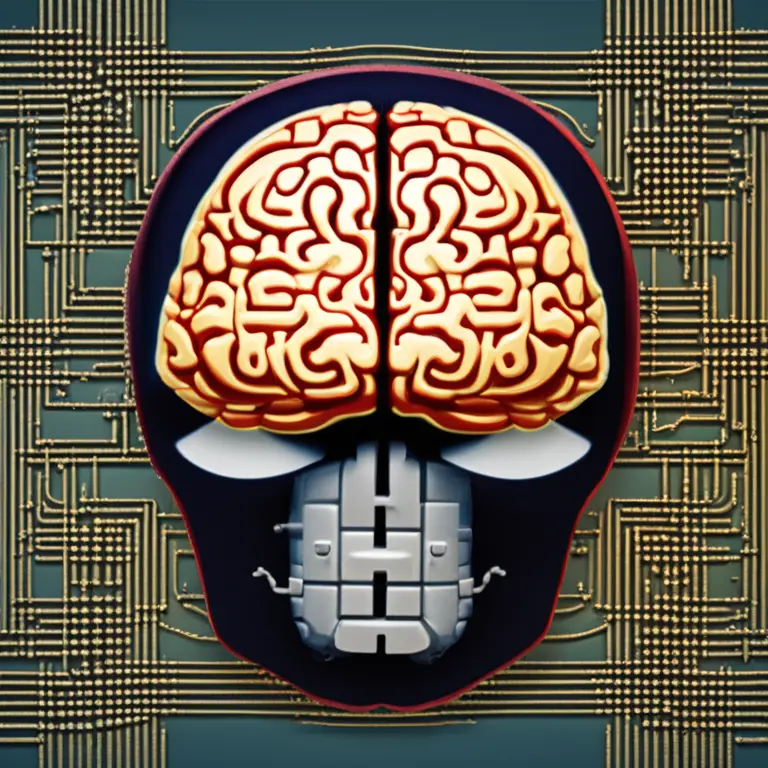
Easing Anxiety Through Meditation: A Mindful Approach
Discover how the timeless practice of meditation can provide effective relief from anxiety, fostering inner peace and mental clarity.
article by Hina Kurosawa
A Gentle Introduction to Meditation for Anxiety Relief
Meditation, an ancient practice with roots stretching back millennia, has gained widespread contemporary relevance as an accessible and effective tool for managing anxiety. It's a practice that transcends cultural boundaries, uniting people in their search for tranquility. As our world grows increasingly connected yet paradoxically more isolating, individuals are turning to meditation to cope with the ubiquitous stressors of modern life. Advances in neuroscientific research have substantiated meditation's efficacy, illustrating how it can significantly lower anxiety levels by modifying neural pathways associated with stress and emotional regulation. With an ever-growing body of evidence supporting its benefits, meditation is not merely a spiritual exercise but a validated method of fostering mental wellness.

Meditation's Impact on the Anxious Mind
The meditation-anxiety nexus hinges on the brain's remarkable plasticity. When we meditate, the amygdala, the brain's 'alarm system' that triggers anxiety, becomes less reactive. Regular practice of meditation deactivates the neural fight-or-flight response, leading to a more balanced state. Additionally, meditation stimulates the anterior cingulate cortex and prefrontal cortex, regions associated with decision-making and emotion regulation. By nurturing these areas, meditation enhances our capacity to manage stress with grace. The proven decrease in cortisol, the stress hormone, during and after meditation sessions, further corroborates these desirable neural changes. In our fast-paced era, meditation stands as a bulwark against the relentless tide of anxiety.

Starting Your Meditation Journey
Initiating a meditation practice can seem daunting; however, the beauty of meditation lies in its simplicity and adaptability. Beginners should start with short, manageable sessions – as little as five minutes a day can yield noticeable results. Consistency is key, and with smartphone apps and online courses tailored to beginners in 2024, integrating meditation into your daily routine has never been easier. Guided meditations provide direction and focus, which can be especially helpful for anxious minds prone to wandering. The growing trend of virtual meditation communities also offers support and camaraderie for those embarking on their meditative journeys, ensuring that even in solitude, one is never truly alone.

When Science and Spirituality Converge
Today's meditators enjoy the unique advantage of having access to a wide array of scientific insights that endorse the practice. Studies continue to reveal how consistent meditation can rewire the brain to better manage anxiety and promote a sense of peace. Mindfulness meditation practices, emphasizing present-moment awareness without judgment, have surged in popularity. This practice particularly helps to break the cycle of anxious rumination, inviting practitioners to observe their thoughts without being ensnared by them. With advancements in wearable technology, individuals can now monitor their physiological responses during meditation, further fine-tuning their practice for optimal anxiety relief.

Meditation as a Complementary Practice
Integrating meditation into a holistic approach to anxiety management can amplify its benefits. Health professionals now often prescribe meditation alongside other therapeutic approaches such as cognitive-behavioral therapy (CBT) and pharmacological interventions. This integrative strategy maximizes the individual's resources to combat anxiety. Meditation is not intended to replace traditional treatments but to complement them, blending ancient wisdom with contemporary science. Whether through yoga, tai chi, or seated mindfulness exercises, meditation offers a versatile addition to any anxiety-reducing regimen.
Embracing a Mindful Future
As society increasingly acknowledges the importance of mental health, meditation is poised to become an even more integral element of individual self-care practices. Schools, businesses, and even governmental organizations are beginning to implement meditation programs, spurred by its proven efficacy in reducing anxiety and enhancing overall well-being. The future heralds a more mindful, compassionate world where meditation is not perceived as an esoteric relic but as a practical, science-backed tool for navigating the inevitable storms of the human experience.
Published: 1/14/2024
Modified: 1/15/2024
More predictions
Come back here soon to learn more about yourself and your future


Healing Through Mindfulness: Meditation & Trauma Recovery
Mindfulness meditation offers a powerful tool for individuals seeking solace and healing from traumatic experiences. Discover how this practice can aid in the journey towards inner peace.


Mindfulness Meditation: A Handbook for High Schoolers
Discover how mindfulness meditation can benefit high school students, enhancing focus, reducing stress, and promoting overall well-being.


Easing Loneliness with Mindfulness Meditation
Explore how mindfulness meditation can provide solace and connection to alleviate the feelings of loneliness.